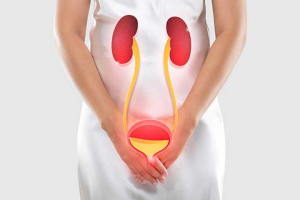Interstitial cystitis (IC) is a chronic condition that causes discomfort or pain in the bladder, as well as a need to urinate frequently and urgently. It is much more common in women than in men. In the past, IC was a rare condition and very difficult to treat, but today it is becoming more common.
What are the causes of interstitial cystitis?
The bladder is a hollow organ with a thin muscular layer that stores urine. When it fills with urine, it sends a signal to the brain, which tells the muscles to release it. In many people, these signals are not sent until the bladder is almost full. If you have interstitial cystitis, the signal to empty the bladder is sent more often or when the bladder is not very full.
The exact cause of interstitial cystitis is unknown, and there are no specific tests to diagnose it. Doctors often perform tests to rule out other possible causes of symptoms and make a diagnosis by exclusion. Many researchers believe that IC may have one or more causes, including: a defect in the bladder epithelium that allows urinary irritants to enter the bladder; changes in the nerves that transmit sensation from the bladder; or the body's immune system attacking the bladder, as it does in other autoimmune diseases. Different processes are likely responsible in different groups of IC patients.
What are the risk factors?
There are no specific behaviors or exposures (such as smoking) associated with an increased risk of developing the disease. The predisposition to the disease may be genetically determined, so family history may be a risk factor.
Approximately 80% of people diagnosed with IC are women. The condition most often develops between the ages of 30 and 40, although it can occur in younger people. Interstitial cystitis may be associated with other chronic pain disorders, such as irritable bowel syndrome or fibromyalgia .
What are the signs of interstitial cystitis?
Interstitial cystitis often begins subtly, sometimes as a simple frequent urge to urinate that the patient may not notice or perceive as a problem. In other cases, the onset is much more dramatic, with severe symptoms occurring over several days, weeks, or months.
Symptoms vary among patients, with periods of greater or lesser severity. Patients with IC may have a frequent/urgent need to urinate (up to 60 times a day in severe cases) or experience pain, pressure or discomfort originating from the bladder, or a combination of these symptoms. Women may report worsening symptoms during menstruation and sexual intercourse.
When to see a doctor?
Most people with IC find that certain foods make their symptoms worse. Therefore, it is necessary to pay attention to all those products that can disrupt the bladder, such as those rich in potassium and spicy foods, as well as certain types of drinks, including: alcoholic, caffeinated and fizzy drinks. The list of products that contribute to the worsening of IC is much longer, but not all products bother the patient in the same way, so each patient must find out individually which products affect their bladder. The easiest way to do this is to follow an elimination diet for a week or two.
When faced with typical symptoms of interstitial cystitis, it is always useful to consult a urologist at the Bogolyuby Medical Center and be sure to report each symptom, since the disease is not easy to recognize or diagnose. Treatment methods vary. Some patients respond well to dietary changes, while others require surgical treatment.

















